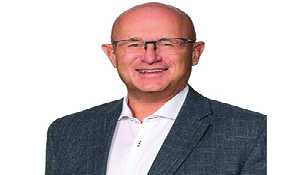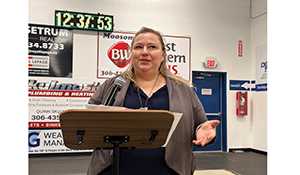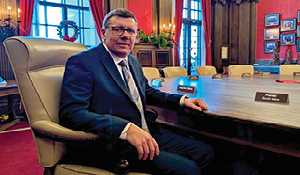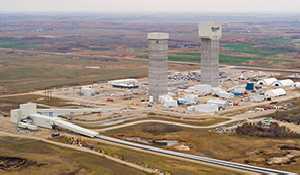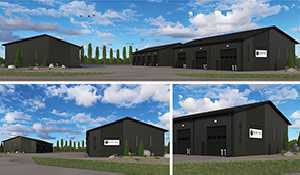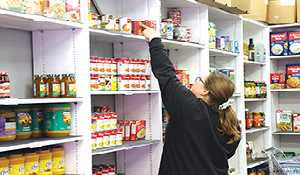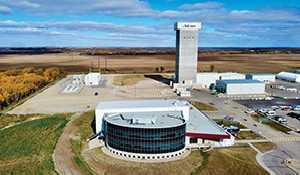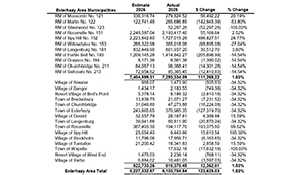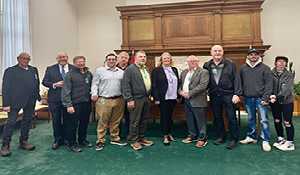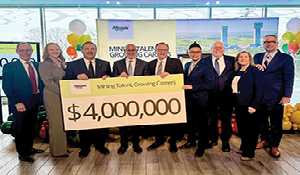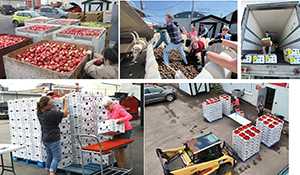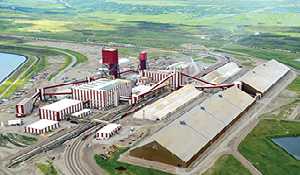CF Sunrise hoping to help SE Saskatchewan economy
Positive attitude noted in survey results:
May 27, 2020, 5:37 am
Rob Paul
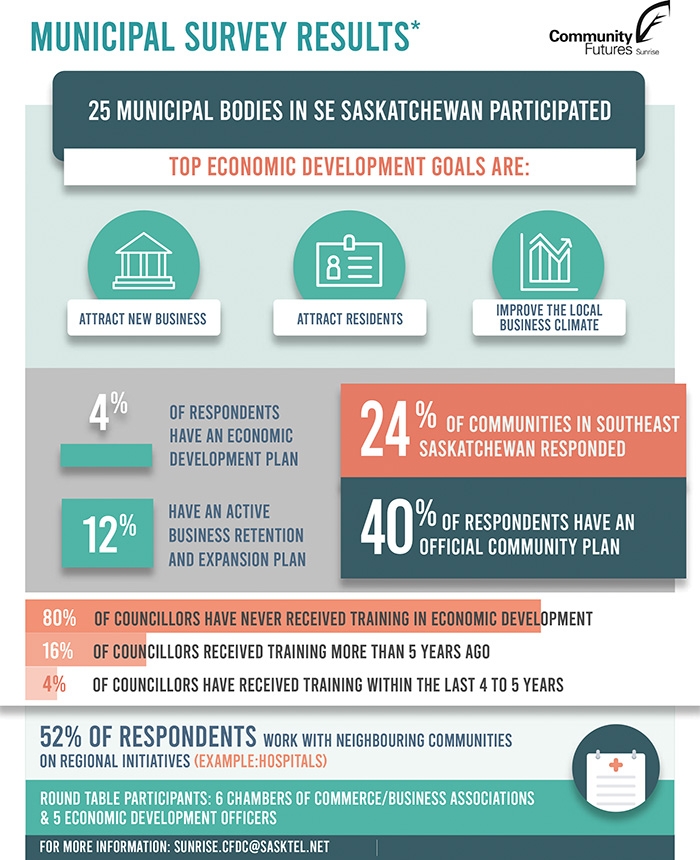

In 2019 CF Sunrise received funding Under the Canada Coal Transition Initiative (CCTI) through Western Economic Diversification (WD) to develop and execute regional business retention and expansion activities and provide a Regional Business Development Plan as input into the larger community transition plan led by the City of Estevan.
The CCTI helps communities and workers affected by Canada’s move to a low-carbon economy in Alberta, Saskatchewan, and Atlantic Canada through Canada’s WD programs that offer grants and loans to communities to help grow Western Canada’s economy.
The CCTI was started in 2019 by the federal government as part of an initiative to phase out all coal-fired power by 2030.
Five Saskatchewan communities were given over $1.2 million to help phase out coal and bring in renewable alternatives. The funding went to Sunrise Community Futures Development Corporation, South Central Community Futures Development Corporation, Southeast Regional College, the City of Estevan, and the Town of Coronach.
On February 28, Saskatchewan Premier Scott Moe announced the Government of Saskatchewan will invest an additional $10 million to support areas transitioning from coal-based industries to other economic opportunities.
The City of Estevan received $8 million and the Town of Coronach received $2 million of the $10 million.
The provincial funding was provided to these two communities who are expected to partner with neighbouring municipalities to distribute the funding to regional initiatives.
“Our government will work hard to ensure this part of our great province can successfully move to cleaner energy sources and new business developments to remain prosperous and vibrant,” said Moe.
“This situation was unfortunately imposed on Saskatchewan much earlier than planned by new federal regulations. This provincial funding will help advance economic development and diversification opportunities, while demonstrating our commitment to these impacted communities.”
CF Sunrise said after extensive engagement with stakeholders throughout the region in the last quarter of 2019, they’ve completed their plan ahead of schedule and are currently sharing it with stakeholders and partners.
After working with businesses in Southeast Saskatchewan, CF Sunrise says there is a need for rural diversification and regional economic development support. They said a lack of economic development knowledge exists at the community level and overall an attitude of optimism and resiliency are prevalent within the region.
CF Sunrise surveyed 96 businesses and 25 municipalities in southeast Saskatchewan to get an idea of where they stand in terms of economic development and what they need to take the next steps as businesses and communities.
“I think some of the key findings that came out of it (the survey) were the lack of knowledge on economic development in the region,” said CF Sunrise Regional Economic Development Co-ordinator Andria Brady.
“How little knowledge was a little surprising. We knew there was certainly a capacity for more and the respondents indicating they want training on that area is a good thing. If you don’t know something and want to learn more with training it’s a good sign.”
“The biggest positive from this is the opportunity for growth through learning and training,” said Brady.
“Certainly now in this post-pandemic recovery the opportunity is even stronger for businesses. That opportunity for growth and expansion is the biggest positive.”
“Another big positive was the overall optimism and sense of positivity that came from the region. There was a sense of ‘we’ve got lots of good things going on here’ from the region and there will always be negatives, but overall that attitude of optimism and positivity is huge. In any downturn being able to see a silver lining is good and much of success is the attitude.”
With the transition away from coal, there will be large economic ramifications and Brady says everybody impacted needs to be prepared with a plan.
“Two thirds of respondents expect to be impacted by the transition away from coal,” said Brady. “That’s a negative impact with less customer base and less sales. I think well it’s not surprising, it’s concerning. It means there needs to be a plan for the region and there needs to be a way to address the loss of revenue and employment and the overall impact on the community.”
Covid-19 has slowed down their next steps, but Brady says they’re planning on providing the educational opportunities businesses and communities need based on the results of the survey.
“Now we’re starting to rollout some action items that came out of this with some of the training that was request and some of the learning opportunities,” said Brady. “A few months back we were getting ready and had done some training, but then everything came to a screeching halt.”
“We’re now moving forward with that again with some economic development learning and training. We’ll be rolling out some workshops in November and those will be held in person at various locations in the region and we’ll be sending out a save the date shortly. That will be geared toward — because we have the municipal elections at the start of November — those new council members, administrators, economic development officers, and anybody who is interested in learning more about economic development in their communities and regions.”
“We had gotten everything lined up to do that and then waited to see how we would proceed with that,” said Brady.
“How that actually happens, with the pandemic, we’ll certainly make changes and we’re planning to have the ability to limit capacity and plan with that in mind, but we’ll still be having them later in November.”
“That’s certainly one of the things that will come out of this and after that there will be additional learning and training opportunities around business retention and investment attraction, but we’re basically going to start with an economic development 101 type of workshop.”
“We’re also going to be putting together a basic grassroots webinar on how to start a business,” said Brady.
“How to take the business idea you have and look at it decide if it’s something you want to proceed with and determine if it’s valid and how to proceed from there.”
One of the biggest keys from the survey results is the need for communities to implement economic development plans to ensure they’re prepared going forward.
“It’s very important for municipalities to have an economic development plan in place,” said Brady. “That’s what should be guiding the communities and regions to do their work and not having a plan makes it difficult for the people employed in those positions to know what their role is too. That’s where the training and the workshops come in too.”
“Community Futures Sunrise is here to support businesses in the region. Whether that’s providing learning opportunities ourselves or connecting to someone else that can help them do that. That’s what we’re doing with these workshops in November, we’re bringing in professionals who have that knowledge and do that training for a living. We’re here to support businesses and the region by providing the education they’re asking for and giving them learning opportunities.”

